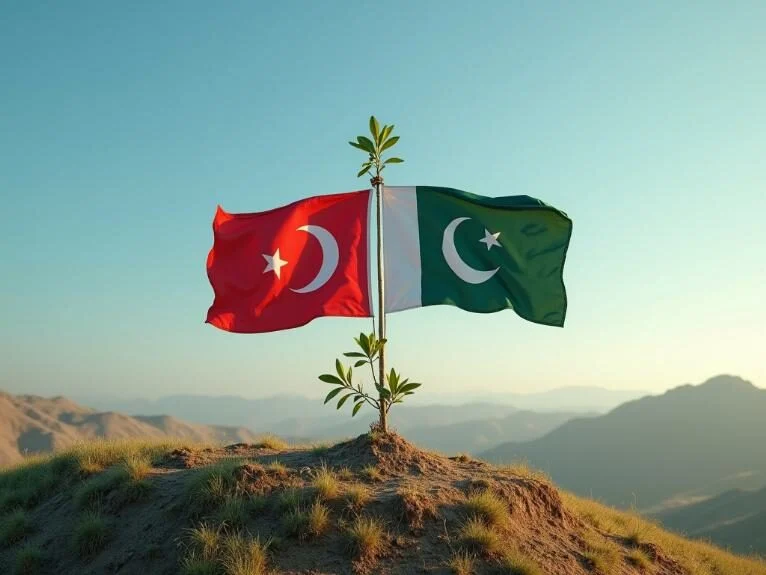A deepening bond between Turkey and Pakistan has emerged as a significant shift in South Asian geopolitics, spotlighting Turkey’s preference for Pakistan over India’s vast Muslim population.
This relationship, rooted in shared Islamic history, dates back to the Ottoman Empire when Muslims under British rule in South Asia viewed the Ottoman Sultan as their Caliph.
Today, with Pakistan as an Islamic Republic, Turkey finds a natural ally in its quest for solidarity among Muslim-majority nations, a connection that overshadows India’s 220 million Muslims, the largest Muslim minority globally.
Under President Recep Tayyip Erdogan’s leadership since 2002, Turkey’s political landscape has shifted.
Once a strictly secular state, it’s moved toward an Islamist-leaning stance through Erdogan’s Justice and Development Party (AKP).
This change, especially after his consolidation of power in 2014, aligns with a broader goal to position Turkey as a leader in the Muslim world, reviving the prestige of the Ottoman era.
Pakistan, as a key partner, benefits from this vision, evident in Turkey’s vocal support for Islamabad’s stance on Kashmir, a long-standing regional dispute.
“We stand with Pakistan on matters of faith and territory,” Erdogan stated during a 2020 visit to Islamabad, highlighting this alliance.
Additionally, the two nations have strengthened their economic ties, with bilateral trade targets set to surpass $5 billion by 2023 through strategic agreements trade targets set.
Meanwhile, Turkey’s ties with India have soured.
Despite India’s significant Muslim population and historical cultural exchanges with the Ottoman Empire, including linguistic ties in regions like Ladakh until the early 20th century, Turkey’s current policies under Erdogan often sideline these connections.
The rise of Narendra Modi’s Bharatiya Janata Party (BJP) in 2014, with its Hindu nationalist agenda, has further strained relations, as Turkey prioritizes religious solidarity over secular partnerships.
This dynamic frustrates many who see India’s Muslim community as a bridge for potential cooperation, while defense collaborations, such as Turkey’s modernization of Pakistani submarines since 2016, underscore the deepening military ties between the two nations modernization of submarines.
Turkey’s ambitions extend beyond mere friendship with Pakistan.
It’s part of a larger “Islamo-nationalist” strategy to boost cultural, political, and economic influence across the Muslim world.
By aligning closely with Pakistan, Turkey seeks to strengthen its role in South Asia, even if it means complicating ties with India, a major regional power.
This approach reflects a deliberate choice to emphasize shared faith over demographic numbers.
For the global Muslim community, Turkey’s preference raises questions about unity.
While Pakistan gains a powerful ally, India’s Muslims, despite their historical ties to Turkey, remain on the sidelines of this geopolitical shift.
The long-term impact of this alignment on South Asian stability remains to be seen, as Turkey continues to navigate its role in the region.

